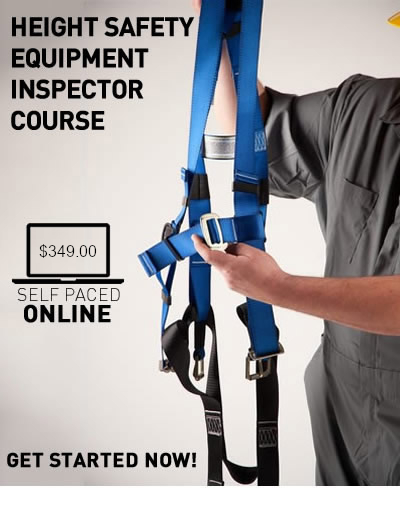No region selected
Tower Climbing & Rescue Training
ICTTCR203 - Use safe rigging practices to climb and perform rescues on telecommunications network structures
Face to Face
Climbing and rescue training for anyone required to work on structure such as telecommunications towers, poles, chairlifts or other tower-like structures.
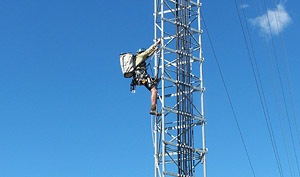
Course Dates
| Location (Western Suburbs) | Start Date | Places Left |
|---|---|---|
| Sydney - Silverwater | Thu, May 09, 2024 (7:30am) |
5 Places Left
Book Now |
| Sydney - Silverwater | Thu, May 23, 2024 (7:30am) |
Places Available
Book Now |
| Sydney - Silverwater | Thu, Jun 06, 2024 (7:30am) |
Places Available
Book Now |
| Sydney - Silverwater | Wed, Jun 12, 2024 (7:30am) |
Places Available
Book Now |
| Sydney - Silverwater | Thu, Jun 20, 2024 (7:30am) |
Places Available
Book Now |
| Sydney - Silverwater | Tue, Jul 16, 2024 (7:30am) |
Places Available
Book Now |
| Sydney - Silverwater | Thu, Aug 01, 2024 (7:30am) |
Places Available
Book Now |
| Sydney - Silverwater | Mon, Aug 12, 2024 (7:30am) |
Places Available
Book Now |
| Sydney - Silverwater | Mon, Aug 26, 2024 (7:30am) |
Places Available
Book Now |
| Sydney - Silverwater | Mon, Sep 09, 2024 (7:30am) |
Places Available
Book Now |
| Sydney - Silverwater | Mon, Sep 23, 2024 (7:30am) |
Places Available
Book Now |
| Sydney - Silverwater | Tue, Oct 08, 2024 (7:30am) |
Places Available
Book Now |
| Sydney - Silverwater | Mon, Oct 21, 2024 (7:30am) |
Places Available
Book Now |
Course Details
Certification
Students who are deemed competent will receive a Statement of Attainment recognised under the Australian Qualifications Framework. This certification is nationally recognised. The Statement is issued by Pinnacle Safety and Training (RTO 40496).
National units of competency
- RIIWHS204E - Work safely at heights
- ICTTCR203 - Use safe rigging practices to climb and perform rescues on telecommunications network structures
Course Duration
2 days. Allow two 8 hour days.
Price
- $695.00 pp for public courses
- For group bookings outside our public course schedule or at your location, please submit your group booking enquiry here for an obligation free quote.
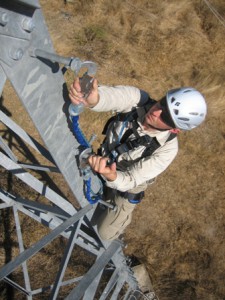
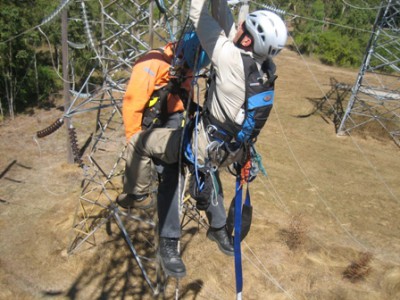
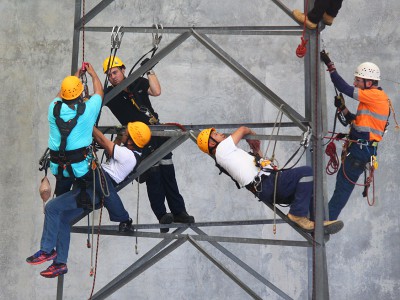
Course Overview
Tower Climbing and Rescue Training is designed to enable trainees to work effectively on towers. Training is focused on:
- Methods of accessing the work position
- Using double hook lanyards
- Using fixed ropes or fixed ladders (on communications towers)
- Mobility at height
- Work positioning methods
- Abseiling techniques
- Rescue techniques (self-rescue and “pick-off” techniques)
Training is designed to be realistic and customised to suit your particular work situation (e.g. communications towers, energy transmission towers, or chair-lifts). This course is suitable for anyone who has the requirement to access towers or poles of any kind within their work.
Course Outline
- AS 1891.4 (overview) (contextualised to tower environments)
- WHS legislative requirements (overview)
- Ladder fall-arrest systems
- Work positioning systems
- PPE selection, use, basic maintenance
- Fall arrest systems
- Using double hook lanyards
- Installing solid and reliable anchorage
- Practical rescue
- Assessment activities (e.g. rescues) in tower context
Course Inclusions
- Training conducted by experienced Height Safety Specialist
- Knowledge on relevant legislation and Australian Standards for Working at Height
- Recommendations and advice for specialised PPE and equipment for your particular workplace
- Advice on risk control methods for the type of work at height to be undertaken
- Plenty of practical hands on training to ensure workers can be safe at height
- Building of the following core skills:
- Abseiling skills
- Ability to work hands-free at height (using pole strap)
- Best practice climbing with a double-hook lanyard
- Rescue of a stranded/injured worker (one-on-one pick-off rescue methodology)
- Assessment activity in tower context
Each Trainee Must Provide
Participants must
- Be at least 18 years of age
- Be physically fit. This training is realistic and very physical. It is important that all personnel who attend this course are willing and capable of moving about at height (ascending and descending ropes) on towers and other high structures. If you do not possess the fitness/strength to climb towers and other structure under your own strength, you will be unable to demonstrate competence required for this program.
Equipment requirements
- We can provide all equipment necessary for you to undertake training including harnesses, ascenders, descenders etc during the course.
- We actively encourage you to bring along your own equipment.
- Please contact us to discuss your equipment requirements.
For our public courses at our purpose built training facility trainees must provide:
- Transport
- Lunch
- Appropriate clothing, closed-in footwear
- Working at Heights - Online Theory + Half Day Practical
- Working at Heights - 1 day
- Working at Heights - 2 day
- Working at Heights and Confined Space Combined
- Working at Heights - Half day Refresher
- Elevating Work Platform (EWP) Under 11m
- Elevating Work Platform (EWP) Over 11m
- Rope Access Training (IRATA)
- Tower Climbing & Rescue Training
- Height Safety Equipment Inspection
- Tower Rescue Refresher
- Vertical Rescue
- Stormseal Accredited Installer
- Working at Heights Awareness
First time doing my tower rescue course. I really enjoyed the course and felt I walked away with some great tips and skills. My instructor Mike delivered the course well. It was direct and to the point and wasn’t filled with old battle stories that some trainers tend to do. Will return to do any future refreshers.
Jasper M. - Carlton, VIC
Crewber Pty Ltd
Your trainer was a very proficient and knowledgeable instructor, his attention to detail can only come from years of experience. I enjoyed this course immensely along with the group as a whole. Please forward my thanks and appreciation for encouraging us all through a strenuous course.
Mark T. - Brisbane, QLD
Rockford ServicesStudent Links
The training was great and the trainer actually took his job seriously. I’ve been through a fair few courses where the trainers don’t really give a crap about what they’re doing they just want to get in and out, but Daniel provided heaps of information and it was actually the most informative course I’ve ever done. Learnt a few new things as well which was good. Definitely would come back to you guys over other training organisations based on the delivery of the course from the trainer.
